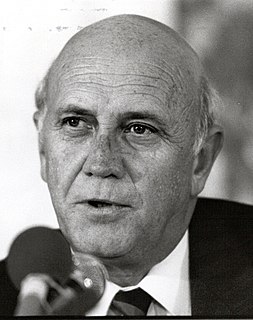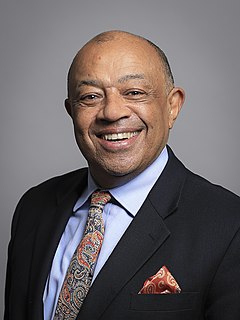A Quote by F. W. de Klerk
I played an integral part in helpings formulating that new vision... that we must abandon apartheid and accept one united South Africa with equal rights for all, with all forms of discrimination to be scrapped from the statute book.
Related Quotes
I am honoured to be asked to take on this role, especially as it comes at such an integral time for our relationship with South Africa and the African continent. There shall be many new challenges and opportunities ahead and I look forward to embracing them with great anticipation [on becoming the UK's high commissioner to South Africa]
We have not ratified The Convention on the Elimination of all forms of Discrimination Among Women. I think 194 countries have signed onto it, but the United States has not. And CEDAW to the United Nations is what the Equal Rights Amendment or the women's equality amendment is to the United States. I think we should pass the women's equality amendment and a lot of these other fights would go away.
I think we've become blind in this country to the ways in which we've managed to reinvent a caste-like system here in the United States, one that functions in a manner that is as oppressive, in many respects, as the one that existed in South Africa under apartheid and that existed under Jim Crow here in the United States.
Politically, [Albert Camus] was in favour of a federation, and effectively he considered that like South Africa today (or as they are trying to do), there should be a mixed population with equal rights, the same rights for the Arab and the French populations, as well as all the other races living there.











































